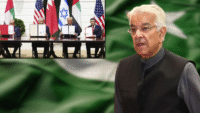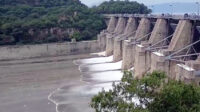ISLAMABAD 7th July: The Khyber-Pakhtunkhwa (K-P) government significantly deviated from the original, agreed design and used inferior quality material in the Rs70 billion Peshawar metro bus project putting lives and assets at risk in the process, according to the Asian Development Bank’s (ADB) findings.
They were recorded by a technical team of the ADB after an on-site inspection of the Bus Rapid Transit (BRT) project in March this year, according to an official correspondence between the lender’s headquarters and the K-P government available with The Express Tribune.
The ADB has warned in clear words that BRT buses could collide at stations number 10, 12, 15 and 26 during operations because the lane width is less than the minimum requirement of 6.5 metres.
Also in March, the ADB stopped the provincial government from making future payments to contractors because of the poor quality of work. The ADB loan will not be disbursed further until the provincial government introduces changes in the design to address “critical” deficiencies.
The inferior quality construction could damage the project’s reputation at the international level, warned the lender that had approved a $335 million (Rs53 billion) loan for the project in mid-2017.
The critical deficiencies would result in improper docking of buses at the stations and could cause injuries to passengers as well. The tiles are slippery and directional arrow tiles are missing as well.
The ADB noted that there were “significant design deviations from the agreed detailed design that impede or degrade system performance.
The provincial authorities also used “inferior material” that both harm system functionality as well as deliver an aesthetically inferior product, according to the correspondence.
The lender’s third major objection relates to the lack of adequate construction supervision and communication. The ADB seeking modifications to remove the defects might not only slow down the completion of the already much-delayed project, but also further surge its cost.
The project was initially approved to be constructed at a cost of Rs50 billion.
However, after coming into power in the Centre, the federal government allowed an increase in the cost by 38% or Rs18 billion to nearly Rs70 billion.






